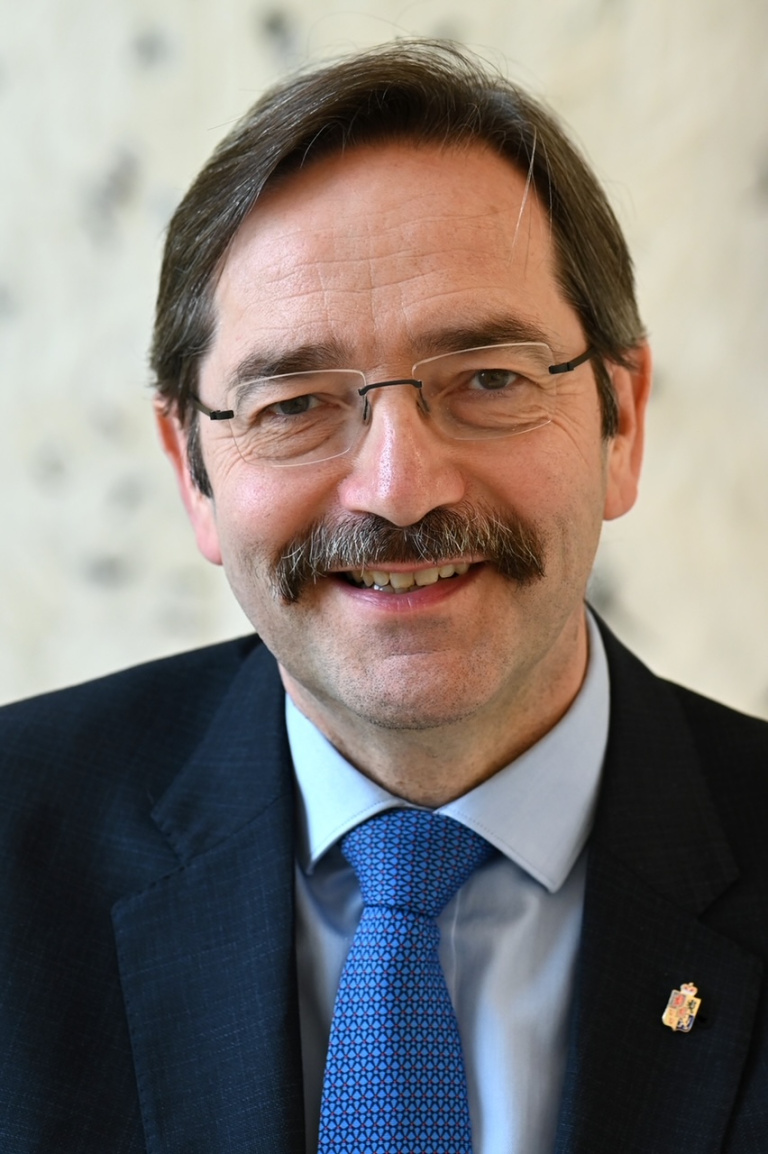Guest column Theo Bovens in newsletter ITEM
15 November 2021'Ich bin ein Grenzbewohner'
In all honesty, I have been angry, even shocked, in recent months. As a public administrator of Limburg and the Meuse-Rhine Euroregion I had to watch, how in a short time -despite 75 years of work on cross-border cooperation and the removal of barriers between countries- the differences in health systems became so dominant that physical borders were re-established once again. And that the consequences for mobility, cross-border working, recreation and education, due to the different crisis approaches, were greater than average for border residents. It seemed as though an atmosphere of hostility, or at least rivalry, was being planted in the minds of the Dutch, Belgians and Germans, almost to the extent that 'doing better than your neighbours' became a goal.
As a city administrator of Maastricht, and later as Governor of Limburg, I worked hard to develop a cross-border identity. Not based on common historical experience (although, as a historian, I value this), but from a conviction of a true added value -economically and socially- to be gained by dismantling cross-border obstacles. That was in fact something that had been ingrained in me since childhood, with ancestral family connections to the regions of Limburg, Aachen and Liège.
In recent months, I have really been asking myself whether I have been chasing a dream all these years. Whether my desire to harmonise systems with neighbouring countries, instead of linking them with subordinate constructions, was not inspired by false romanticism and naivety.
But then came the relaxations of measures. And I saw the hunger of people in my region to cross the border again. And I also saw this hunger among border residents on the other side of the national border. And I delved into the region around Enschede, of which I am now the mayor, and I heard the same anger about the impact of pandemic control in various countries. Then, I spoke with administrators from Hasselt, Liège, Eupen and Aachen, and heard how similar their experiences had been. And I also realised how much had been achieved in cross-border cooperation: the logistical cooperation on protective equipment, the medical cooperation on ICU care, the flexible way in which commuters could continue to work through vignettes and inexpensive tests.
And I saw a representative of ITEM on the television stations explaining the foolishness of border closures in a perfectly clear and convincing way. That it is not nationality or passport but the actual degree of infection that is a much more effective entry criterion. That message immediately helped me overcome my anger.
My anger has not been forgotten, but is accompanied by optimism. So many have now proclaimed: no more border closures, and so many have called for better coordination between countries and health systems. I heard ministers say it at the Grenslandconferentie in Enschede, but I also hear it from citizens and entrepreneurs in the regional media along the border.
So I will gladly continue working on my dream: To build cross-border regions. For example: that we disregard national borders when it comes to our health. That an infection in Heinsberg, Germany cannot be dismissed in The Hague with the words: 'oh, but that is across the border' (while it raged at less than 3 kilometres from Dutch village centres). Or for example: that we visit each other more than before as students, tourists or sportsmen, in our own Euroregions. And that real accomplishments may make us prouder of our fortune of being able to live in areas with other cultures at hand. That pride is something I would like to promote.
Source: Newsletter ITEM - October 2021
Website ITEM
The aim of ITEM is to contribute from science and knowledge to the development and realization of a well-functioning transnational society with a focus on cross-border economy and labour.
The mission of ITEM is to use science and knowledge to optimize European and Euregional social and economic developments and to strengthen cross-border cooperation for the benefit of quality of life in European border regions. ITEM's societal translation of interdisciplinary scientific knowledge is essential in this regard. ITEM wants to generate impact in society. ITEM wants to generate impact in society.
To achieve this impact ITEM is always in connection with society. In the October newsletter they presented their first Guest author Theo Bovens, Mayor of Enschede and former Governor of the Province of Limburg (NL).